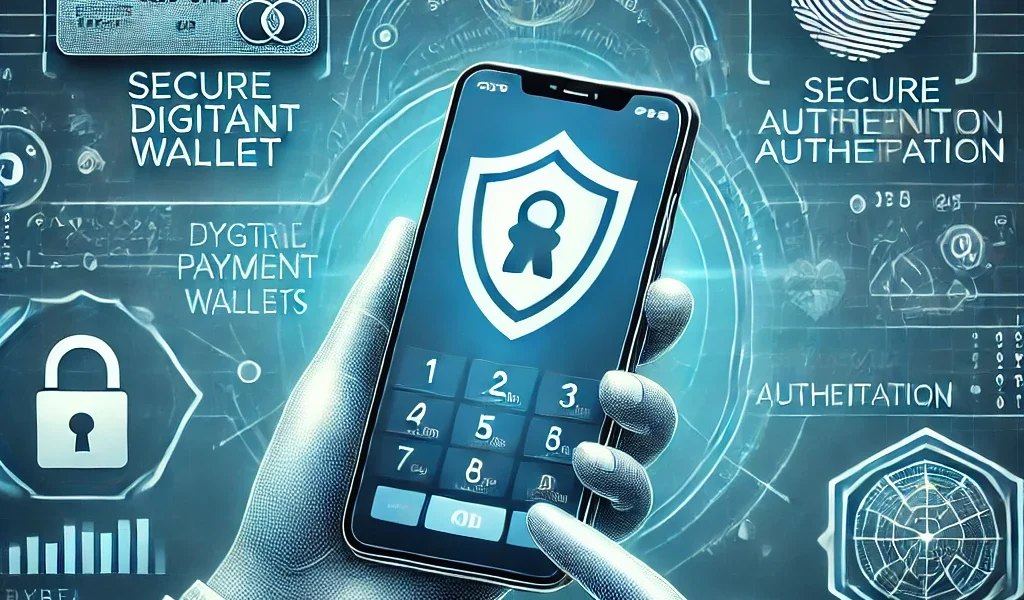In today’s digital era, online transactions have become a necessity. Whether shopping online, transferring money, or paying bills, digital payment wallets provide a seamless and secure way to manage financial transactions. However, with rising cyber threats and fraud cases, security is a top concern for users. Choosing the most secure digital payment wallet is crucial to protecting your money and personal information.
This detailed review covers the most secure digital payment wallets in 2025, analyzing their security features, pros and cons, and what makes them the best choice for secure transactions.
Why Security Matters in Digital Payment Wallets?
With increasing online fraud and cyberattacks, ensuring that your digital wallet is secure is essential. Here are key security features to look for in a secure payment wallet:
- End-to-End Encryption (E2EE) – Encrypts your data to protect transactions.
- Two-Factor Authentication (2FA) – Adds an extra layer of security.
- Biometric Authentication – Uses fingerprint or facial recognition for access.
- Fraud Protection & AI Monitoring – Detects and prevents suspicious activity.
- Tokenization – Protects card details by replacing them with encrypted tokens.
Now, let’s review the most secure digital payment wallets available today.
1. PayPal – Most Trusted & Widely Accepted
Security Features:
- End-to-end encryption on all transactions.
- Buyer & Seller Protection for fraud prevention.
- Two-factor authentication for additional security.
- AI-driven fraud detection system.
Pros:
- Accepted worldwide for online and in-store payments.
- Provides dispute resolution for unauthorized transactions.
- No need to share card details with merchants.
Cons:
- High transaction fees for international transfers.
- Freezes accounts under suspicious activity, sometimes causing inconvenience.
2. Apple Pay – Best for Apple Users
Security Features:
- Tokenization technology ensures card details are never stored or shared.
- Face ID and Touch ID authentication for added security.
- Transactions require device authentication (PIN, Face ID, or Touch ID).
Pros:
- High security with biometric authentication.
- No need to carry physical cards.
- Works seamlessly with iPhones, Apple Watches, and Macs.
Cons:
- Limited to Apple devices only.
- Not universally accepted by all merchants.
3. Google Pay – Best for Android Users
Security Features:
- Tokenization technology keeps card details hidden from merchants.
- Advanced AI fraud protection monitors transactions for unusual activity.
- Multi-layered encryption for securing transactions.
Pros:
- No transaction fees for bank transfers.
- Works across Android devices and online stores.
- Allows easy integration with loyalty programs and rewards.
Cons:
- Limited international availability.
- Requires a Google account for use.
4. Samsung Wallet – Best for Samsung Users
Security Features:
- Samsung Knox protection for multi-layered security.
- Tokenization to protect card information.
- Biometric authentication (fingerprint or iris scan).
Pros:
- Works even without an internet connection.
- High-level security with Samsung Knox.
- Can store more than just payment cards (IDs, boarding passes, etc.).
Cons:
- Limited to Samsung devices.
- Not as widely accepted as Apple Pay or Google Pay.
5. Venmo – Best for Peer-to-Peer Transactions
Security Features:
- Encryption technology secures financial data.
- Two-factor authentication for secure login.
- Privacy settings allow users to control transaction visibility.
Pros:
- Fast and easy way to send/receive money among friends.
- Free transactions when linked to a bank account.
- Social features make splitting payments convenient.
Cons:
- Less secure when linked to credit cards (higher fees apply).
- Privacy concerns due to default public transaction settings.
6. Cash App – Best for Instant Bank Transfers
Security Features:
- PCI-DSS Level 1 certification (highest security standard for payments).
- Fraud monitoring and real-time alerts.
- Bitcoin and stock investing security layers.
Pros:
- Simple and easy-to-use interface.
- Allows Bitcoin and stock investments within the app.
- Free peer-to-peer transfers within the U.S.
Cons:
- Limited international availability.
- Charges fees for instant transfers and credit card transactions.
7. Zelle – Best for Bank-to-Bank Transfers
Security Features:
- Direct bank integration, eliminating the need for storing card details externally.
- Real-time authentication for money transfers.
- No third-party access ensures secure transactions.
Pros:
- No additional app required for many bank users.
- Instant transfers between participating banks.
- No fees for personal transactions.
Cons:
- Limited fraud protection for unauthorized transactions.
- Only available for U.S.-based bank accounts.
How to Choose the Most Secure Digital Payment Wallet
1. Look for Strong Security Features
- Ensure the app has encryption, biometric authentication, and fraud monitoring.
- Tokenization is a must for keeping card details safe.
2. Consider Your Device & Ecosystem
- Apple users: Apple Pay
- Android users: Google Pay
- Samsung users: Samsung Wallet
3. Evaluate Payment Flexibility
- If you make international payments, PayPal is a good choice.
- For domestic transfers, Zelle or Venmo works well.
- If you need investment options, Cash App allows crypto and stock investments.
4. Check for Transaction Fees
- Many wallets offer free transfers for linked bank accounts.
- Credit card transfers often incur higher fees.
Frequently Asked Questions (FAQs)
1. Which is the safest digital payment wallet?
Apple Pay, Google Pay, and Samsung Wallet are among the most secure due to their encryption, biometric authentication, and tokenization technologies.
2. Can I use multiple digital wallets?
Yes, many users have multiple wallets for different purposes, such as Google Pay for purchases and PayPal for international transactions.
3. What should I do if my wallet is hacked?
- Immediately change your passwords and enable 2FA.
- Contact customer support to report the issue.
- Monitor your bank statements for unauthorized transactions.
4. Are digital payment wallets safer than credit cards?
Yes, most wallets use tokenization, which replaces your card details with encrypted codes, making them more secure than traditional credit card transactions.
5. Do digital wallets charge transaction fees?
Many offer free transactions for linked bank accounts, but credit card payments and instant transfers may incur fees.
Final Thoughts
When selecting a digital payment wallet, security should be your top priority. With advanced encryption, biometric authentication, and fraud detection, options like Apple Pay, Google Pay, and PayPal provide high levels of security for safe transactions.
Always enable two-factor authentication (2FA), use strong passwords, and monitor account activity to further protect yourself from cyber threats.
Choosing the right digital payment wallet can make your transactions not only convenient but also secure and risk-free.


